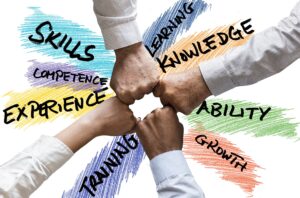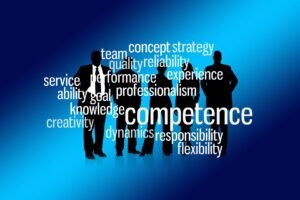
Executive Coaching: Why Becoming a Better Leader Requires “Growing Up”
A good friend of mine and I have had a competition going for several years. In addition to our personal friendship we are Fitbit “friends”, so each week we get a report with each other’s step counts. As you might expect, each of us has good weeks and not so good weeks, so we take turns “winning” and “losing” the weekly competition.
I thought of this while reading an article in the newspaper about someone fired for inappropriate behavior. When I started reading, I wondered if the person who was fired would take responsibility or blame “cancel culture”, suggest he was misquoted, or say his comments were taken out of context. In this way he could attempt to turn himself into a victim and avoid being accountable and acknowledging his mistake. Sadly, he opted for the “victim choice” which neither helps him to grow nor repairs the damage caused by his actions.
Something I find so impressive about my Fitbit friend is his graciousness and his commitment to taking responsibility when I win the weekly competition. Invariably, he will send me a note congratulating me on the good week I had and committing himself to doing better the following week.
Now, lest you think he is not competitive, almost always he will crush me the following week. He does not take the victim route. He takes responsibility, sets new goals, and beats me soundly.
Not surprisingly, my friend is a very successful person and was a very successful CEO. Part of what made him successful was his commitment to taking responsibility for his personal growth and continual development as a person and as a leader.
One of my core beliefs is that you can’t grow as a leader if you are not at the same time in the process of growing up as an adult. And personal growth requires self-awareness, accountability, and a commitment to continuous learning.
The choices you make as a leader are based on experience, emotion, and habit. If the world stayed the same, or if our habits were all developed for positive reasons, this would not be a problem. Unfortunately, neither of these conditions are valid in real life.
Solutions that worked in the past are often ineffective or inappropriate to current circumstances. And our emotional reactions and habits were often developed as ways to compensate for perceived threats. This means we may overreact or underreact to situations in the present. It also means that we may resist, out of fear, seeking out or trying novel ways to approach the challenges we face in the present.
This is where professional, experienced coaching can help. A great coach understands psychology, adult development, and business/organizational realities. By using professional personality assessments, your coach will help you grow in your self-awareness of ways in which your emotions and habits may mislead you into behaving in ways that sabotage your success. As you grow in self-awareness and trust in your coach, you will also see that it is possible to take risks to try out new solutions to issues you face.
Then, if your coach is herself an experienced leader, she will teach you new ways to approach strategic and people problems that all leaders face. And she will support you in testing these new solutions in safe ways.
Leaders considering coaching sometimes feel that it is selfish to use organizational resources for their personal development, particularly in challenging times. I would argue that this is short sighted. Cutting expenses in the short term at the cost of not growing as a leader means you are robbing your organization of innovation and fresh approaches to the novel you and your colleagues are confronting. And you are limiting your growth as a person (friend, partner, parent) and a leader.
Are you finding that your tried and true solutions are no longer working? Are you tired, frustrated and feeling less optimistic than usual? These are signs that it is time to gain a fresh perspective and to get support from a skilled coach. If the above sounds like you, give me a call at 612-327-4030 to discuss how coaching might be of benefit to you and your organization.




